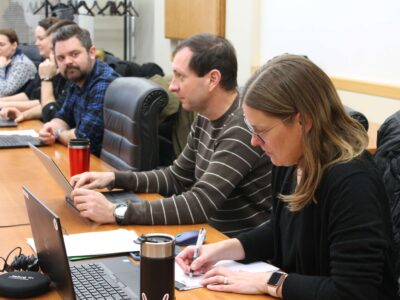25
June


Since 2010, the ability to broadcast over the internet eliminated the need for designated sites. Anywhere in the world, pharmacy practitioners with high-speed internet access can participate in DPPD’s Distance Learning Experiences (DLE). Pharmacist learners still can congregate at designated sites and learn together, but most choose to participate from their home or work sites. Slides with audio accompaniment are followed by the Q & A session using a “chat” window on the computer screen, with questions visible to all. Even if multiple questions are typed at once, only one question appears at a time. The current format also frees the speaker from having to be present in Madison for the synchronous Q & A session. The 2015 Fall DLE series, “Updates in Infectious Diseases,” exploits this flexibility and features faculty from across the U.S. The Infectious Disease DLE course kicks off DPPD’s fall pharmacist programming for 2015. The Fall Milwaukee Symposium on October 2 will cover the Pharmacist’s Role in Public Health. The Alumni Weekend program will cover Pain Management on October 16. Finally the Fall Madison Institute, covering Opioid Use, Abuse, and Controversies, will be held on November 11.



